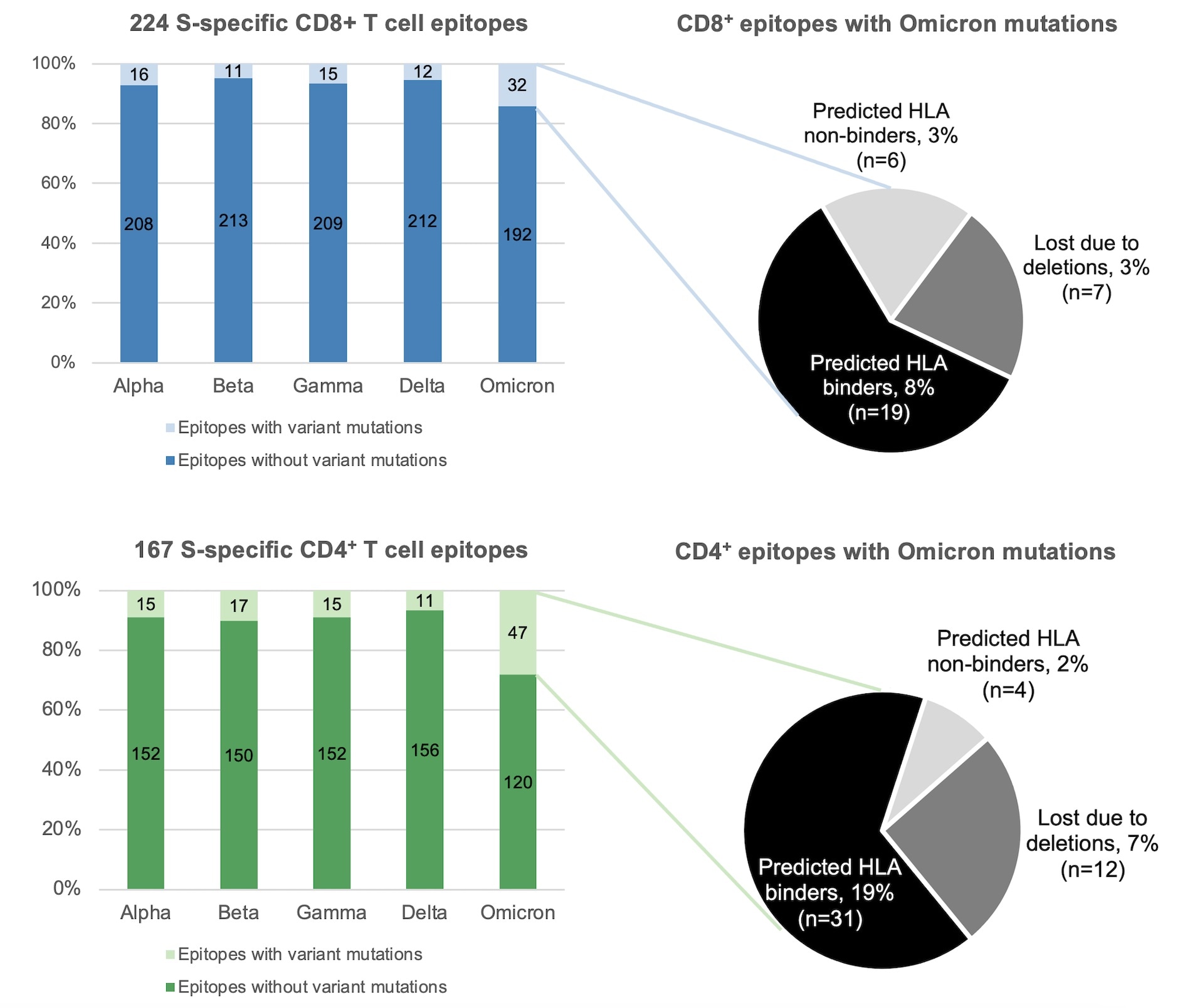According to research from the Hong Kong University of Science and Technology (HKUST) and the University of Melbourne, T cells, one of the body’s key defenses against COVID-19, are thought to be effective in setting up an immune response against Omicron despite the substantially higher mutations compared to earlier variants of concern.

The research team found that despite the number of epitopes encompassing Omicron mutations are nonetheless notably higher than other virus variants, Omicron, like other variants, is still unlikely to escape human’s T cell responses. Image Credit: Hong Kong University of Science and Technology, University of Melbourne
T cells, which are produced by both vaccinations and COVID-19 infections, are essential in limiting the progression of the disease by eliminating virus-infected cells and assisting with other immunological system functions.
Initial research indicates that Omicron (which is quickly becoming the most prevalent circulating pressure globally) can avoid antibodies produced by vaccination or natural COVID-19 infection, citing fears about the increased likelihood of re-infection and breakthrough cases.
The team analyzed over 1,500 fragments of SARS-CoV-2 viral proteins, known as epitopes, which are identified by T cells in recovered COVID-19 patients or after vaccination. The findings of the team suggest that Omicron is therefore not likely to be able to avoid T cells, adding to growing evidence from scientific analysis around the world that is also looking into T cell responses to COVID-19. The study was published on January 2nd, 2021, in Viruses journal.
Despite being a preliminary study, we believe this is positive news. Even if Omicron, or some other variant for that matter, can potentially escape antibodies, a robust T cell response can still be expected to offer protection and help to prevent significant illness.”
Matthew McKay, Professor, University of Melbourne
Prof. Matthew also co-led the research.
The enormous amount of mutations in Omicron’s spike protein, which is the primary target of COVID-19 vaccines, is perhaps the most concerning factor.
The spike allows the virus to attach to and enter human cells. Present vaccines stimulate neutralizing antibodies aimed at disrupting this process; however, these antibodies were seen to be less effective against Omicron than earlier variants such as Delta.
In analyzing virus epitopes from the spike protein that are targeted by T cells in vaccinated or previously infected individuals, the study found that only 20 % exhibited mutations linked to Omicron. Even then, these mutations do not necessarily mean the virus will be able to evade the body’s T cells.
Among these T cell epitopes that have Omicron mutations, our further analysis revealed that more than half are predicted to still be visible to T cells. This further diminishes the chance that Omicron may escape T cells’ defenses.”
Ahmed Abdul Quadeer, Research Assistant Professor, Department of Electronic and Computer Engineering, Hong Kong University of Science and Technology
Quadeer also co-led the research.
Although the study focused on the virus’s spike protein, the researchers expanded their examination to other virus proteins and discovered that the vast majority (more than 97%) of non-spike T cell epitopes do not include mutations linked to Omicron.
These results overall, would suggest that broad escape from T cells is very unlikely. Based on our data, we anticipate that T cell responses elicited by vaccines and boosters, for example, will continue to help protect against Omicron, as observed for other variants.”
Matthew McKay, Professor, University of Melbourne
Source:
Journal reference:
Ahmed, S. F., et al. (2021) SARS-CoV-2 T Cell Responses Elicited by COVID-19 Vaccines or Infection Are Expected to Remain Robust against Omicron. Viruses. doi.org/10.3390/v14010079.